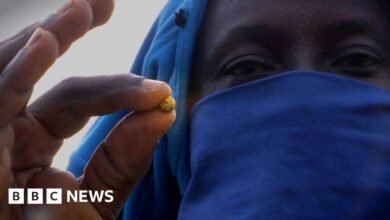Attiéké: Ivory Coast’s staple food gets Unesco cultural heritage title

Japanese sake, an alcoholic beverage made from grains, was also added to the list this year.
In Ivory Coast, attiéké is often served at ceremonies such as weddings, baptisms, funerals, and community meetings.
But it is more than just a meal, it is some people’s livelihood and a pathway to financial autonomy for many women.
Attiéké is traditionally made by women and girls. The process can take a few days as there are many steps rooted in tradition.
The cassava root is peeled, grated and mixed with a previously fermented cassava.
The pulp is then pressed to remove the starch and later processed manually and dried and then steamed.
It is then taken to local markets, where it is typically sold in plastic bags each containing a single ball of attiéké.
But at the heart of it, attiéké, is a cultural connection from one generation to another.
The recipes, processes, and methods are passed down from mother to daughter and the dish “is a pillar of their identity and that of the whole of Ivory Coast”, said Ms Ly-Bakayoko.
The Unesco list highlights intangible cultural heritage that are at risk, emphasising the need to protect and preserve traditional practices. The inclusion of attiéké highlights its importance to humanity as a collective, Unesco says.
Earlier this year, the African Regional Intellectual Property Organization registered a collective trademark to prevent cassava produced in other countries being sold under the name attiéké – in the same way that champagne has to be produced in the area of France with that name.
Ivory Coast sought this protection after other countries, as far afield as south-east Asia, have attempted to capitalise on the popularity of attiéké.
Source link



